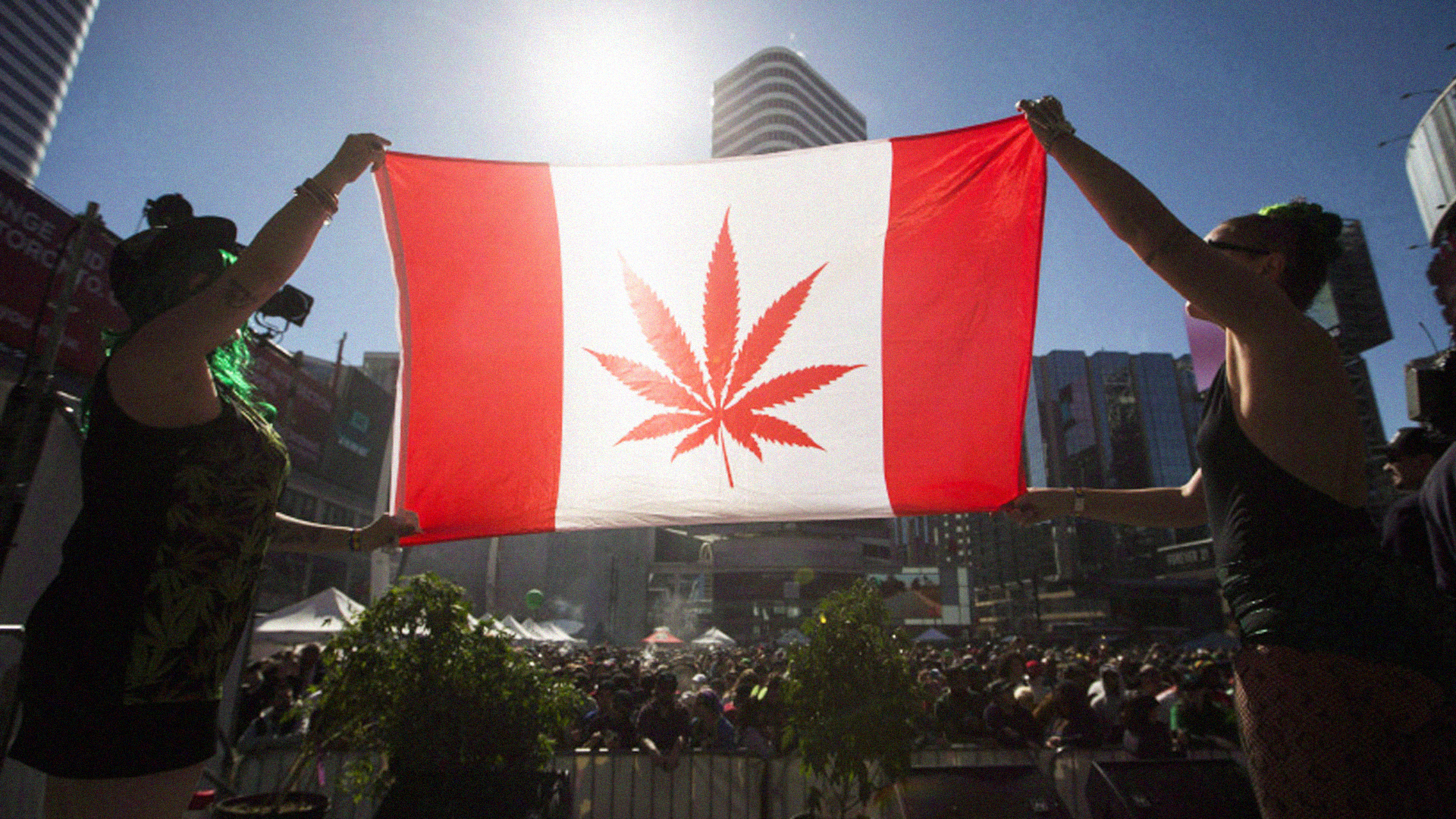You are here
Home 🌿 Marijuana Politics 🌿 Health Canada probing cannabis labelling amid Canopy Growth potency complaint 🌿Health Canada probing cannabis labelling amid Canopy Growth potency complaint

Health Canada is investigating complaints alleging inaccurately-labelled potency levels for some products sold by licensed pot producers, including industry leader Canopy Growth Corp.
The Smiths Falls, Ont.-based cannabis producer was called out by a rival in a complaint submitted to Health Canada's Cannabis Compliance Directorate last month. According to a copy of the document obtained by BNN Bloomberg, the complaint centres on sales of Canopy’s TWD brand that displays a flat 20-per-cent tetrahydrocannabinol (THC) potency for 18 separate batches of its cannabis products.
"The statistical likelihood of this many lots coming back with identical test result potencies of precisely 20.0 per cent is extremely low, which leads us to believe Canopy is employing a static labelling approach," wrote B.C.-based Pure Sunfarms in the complaint. Pure Sunfarms is wholly owned by Village Farms International Inc.
"Our conclusion is further supported by conversations with some of our provincial partners who indicated that certificates of analysis they receive from Canopy on these products do not match the potency found on the TWD labels in question."
Aside from price, potency levels are one of the top criteria that Canadian cannabis users consider in their product purchases.
As a result, cannabis producers try to grow plants that yield potency levels above 20 per cent, which is believed to be the preferred minimum potency among Canadian marijuana consumers. Canada's licensed producers currently have more than one billion grams of cannabis collectively stored in inventory, as they believe it is of insufficient potency or quality. Executives from several producers, such as Tilray Inc. and Sundial Growers Inc., have frequently stated low THC potency as a weight on sales, resulting in either sizable inventory write-downs or missed revenue opportunities.
Cannabis companies are required to label the THC and cannabidiol (CBD) content and potency levels on the packaging for each respective lot or batch. However, Canada's cannabis regulations don't set variability limits for THC or CBD for dried flower products. It does set criteria on how edibles and extracts potency can be labelled.
A Health Canada spokesperson told BNN Bloomberg in an emailed statement that there is no variability limit for dried cannabis as potency levels vary between different parts of the plant as well as between plants within a specific lot or batch.
"All issues and complaints brought to Health Canada’s attention are taken seriously, including any issues with licence holder activities as they relate to the Cannabis Regulations. If warranted, after further investigation, Health Canada would take appropriate action to correct any potential non-compliance," according to a Health Canada spokesperson.
When asked to comment on the Health Canada complaint, a spokesperson for Canopy Growth told BNN Bloomberg in an emailed statement that the company complies with Health Canada’s labelling requirements.
"Flower strains must achieve a defined THC and CBD percentage potency. This percentage dictates how the product will be labelled – both as a brand and strain," the spokesperson said.
"The percentage is a representative midpoint of a narrow range of historical test results for that product and strain. Only strains that meet the product-specific cannabinoid targets, as tested both in-house and by independent third-party labs will be sold."
In an interview, Mandesh Dosanjh, chief executive officer at Pure Sunfarms, said that regulators need to be clear about the rules about labelling cannabis potency to avoid any ambiguity that could be misinterpreted by Canadian licensed producers.
He said that providing flat or static potency figures on labels "flies completely in the face of what's written in the rules and regulations." He added that Health Canada should create a testing standard that all third-party labs should abide by when calculating cannabis potency levels to avoid any possible discrepancies one lab may have compared to others.
"If we have misinterpreted it like 95 per cent of the industry, there's a significant cost disadvantage to labelling the exact percentage on the bag," Dosanjh said.
"If Health Canada is okay with that, there'd be a significant economic impact to us and many other producers as well as efficiencies in the supply chains of the retailers and the provincial boards."
420 Intel is Your Source for Marijuana News
420 Intel Canada is your leading news source for the Canadian cannabis industry. Get the latest updates on Canadian cannabis stocks and developments on how Canada continues to be a major player in the worldwide recreational and medical cannabis industry.
420 Intel Canada is the Canadian Industry news outlet that will keep you updated on how these Canadian developments in recreational and medical marijuana will impact the country and the world. Our commitment is to bring you the most important cannabis news stories from across Canada every day of the week.
Marijuana industry news is a constant endeavor with new developments each day. For marijuana news across the True North, 420 Intel Canada promises to bring you quality, Canadian, cannabis industry news.
You can get 420 Intel news delivered directly to your inbox by signing up for our daily marijuana news, ensuring you’re always kept up to date on the ever-changing cannabis industry. To stay even better informed about marijuana legalization news follow us on Twitter, Facebook and LinkedIn.




